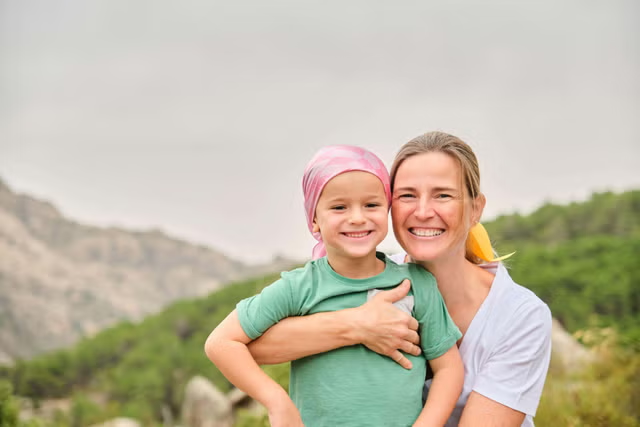When Olivia Rodrigo partnered with abortion funds across the United States to provide free access to birth control for her concert-going fans last month, the 21-year-old pop star was praised for her continuing commitment toward reproductive justice. That is, until her team reportedly ceased her partnership with the abortion funds over concerns that Rodrigo’s audience was too young to receive such information. But, according to students themselves, they’re never too young to learn about sexual health.
On 12 March, fans at the “Deja Vu” singer’s concert in St Louis, Missouri – where abortion is completely banned, with very limited exceptions for medical emergencies – received free emergency contraception and condoms. The Missouri Abortion Fund and Right By You, a text hotline that connects young people to abortion care, birth control, and information about reproductive rights, distributed free boxes of the one-step pill Julie, a progestin‑only emergency contraceptive that prevents pregnancy when taken within 72 hours after unprotected sex. The non-profit organisation hosted booths at the concert venue, where fans also received free condoms, heart-shaped stickers with abortion resource links, and a square sticker with a QR code and the words, “Funding abortion? It’s a good idea, right?” written across it.
A photo of the free emergency contraceptives went viral online, prompting fans and media outlets to applaud Rodrigo for what was perhaps the biggest gesture of abortion rights advocacy from a universally recognised musician in recent months. However, just days later it was reported that the “Vampire” singer’s team had allegedly informed the abortion funds, which were slated to table at future tour stops, that they were prohibited from distributing such supplies. Their reasoning? That items such as condoms, lube, or emergency contraception would be “too accessible” to young people in attendance, multiple fund workers confirmed to Jezebel at the time.
For Coral Gimbernaud, an 18-year-old high schooler in central Florida, the misconception that sexual health should only be taught to adolescents of a certain age is one that’s all too familiar. As a peer educator with her local Planned Parenthood and a member of the Youth Advisory Board for EducateUs – which advocates for comprehensive sex education in schools – Gimbernaud isn’t the only student who’s concerned about where they can look to receive sexual health resources, if at all.
“A general philosophy in my house with my own parents is if they’re old enough to ask a question, then they’re old enough to know the answers,” she told The Independent. “By that point, if you’ve received no conversation about sexual health, that’s kind of a problem.”
More than 749 bills related to sex education and access to reproductive health care were introduced by lawmakers in 2023, according to SIECUS: Sex Ed for Social Change. Out of those bills, more than 65 per cent of them attempted to restrict the rights of young people, especially LGBTQIA+ youth, people of colour, and other marginalised communities. That’s why grassroots organisers believe that advocating for progressive sex education at every age is important now more than ever.
“We want to start teaching our kids about their health and their wellbeing well before they actually need that information,” said Brittany McBride, director of training at Advocates for Youth. “For me, I want to make sure that they’re getting this as young as possible, because I need them to understand this before it’s actually applicable to their lives.”
The misconception that adolescents may be too young to learn about sexual health perhaps stems from the fact that many teachers, parents, or lawmakers didn’t receive a comprehensive sex education themselves. Whether it’s society’s seemingly never-ending stigmatisation of sex, the uncomfortability that some parents may feel broaching topics of sex with their children, or the ongoing threat of disinformation perpetuated by far-right extremists, these barriers ultimately disempower a younger generation by not providing them with the tools, the knowledge, and the skills they need to live healthy and whole lives.
In order to challenge such misconceptions, sexual health advocates want people to understand that learning about sex education goes far beyond just the birds and the bees.
“We stand firm on the understanding that sex education should begin in kindergarten and go all the way through 12th grade. That being said, sex education kindergarten through fifth grade looks vastly different from sixth grade to 12th grade,” said Michelle Slaybaugh, director of social impact and strategic communications at SIECUS. “It is scaffolded in a way, when taught from a quality perspective, utilising the National Sex Education Standards that builds upon lessons learned the previous year.”
A 2020 study conducted by Montclair State University found that introducing topics about the basics of consent and respectful boundaries to children as young as preschool age helps improve their self-protective skills and lays the groundwork to recognise healthy relationships later in life. At higher grade levels, comprehensive sex education within schools has also resulted in decreased intimate partner violence, and an increase in bystander interventions.
Sydney Turner - a junior at University of Illinois Urbana-Champaign - recalled receiving a less than substantial sex education at her middle school in Minnesota, which ranges in quality from a comprehensive education to abstinence-only instruction. For Turner, she received the latter. Meanwhile in Florida, where Gimbernaud was allowed to opt-out of sex ed, schools are not explicitly required to provide sex education to students. That’s the case in much of the country, where only 39 states and the District of Columbia mandate some kind of sex education, according to Planned Parenthood.
Of course, a lack of quality information about sexual health leaves Gen Z students with another option: seeking answers online. While social media has oftentimes proven itself to be an efficient tool in advocacy and grassroots organising, there are still the inevitable far-right accounts disseminating propoganda about gender and sexuality.
“In today’s day and age with social media and the internet and everything that kids are being exposed to, they’re being exposed to it in different ways,” Turner explained. “Even if they’re not online, on social media like TikTok seeing this information, they might be hearing it from friends at school and that has never changed.”
“When we’re able to give adolescents supportive information without shame – being honest about information, not sugarcoating things, using accurate language – when we do that, then they’re better equipped to be able to make their own decisions,” she said.
It wasn’t lost on many that the GUTS Tour stops where Rodrigo helped distribute free emergency contraception were in states where abortion is facing restrictive or near-total abortion bans. While it’s no secret that access to abortion has faced constant attacks since the US Supreme Court overturned Roe V Wade in June 2022, advocates are concerned that the right to a quality and comprehensive sex education in schools will likely be next in the line of fire.
“Our education and our access to medical care is being restricted, and is currently under attack every single day. It’s terrifying as a person with a uterus who cares about other people who also might have restrictions to access what is just healthcare,” said McBride. “Now more than ever, the absolute bare minimum is providing an inclusive and complete education that covers all the content a young person might need.”
However, it’s important to note that the weight of solving an entire reproductive health crisis in the US shouldn’t fall on the shoulders of young women, let alone someone as famous as Rodrigo. Really, fellow young women like Gimbernaud and Turner applaud the Disney Channel star for taking a stand for reproductive justice, despite the backlash that may come with it. In fact, just weeks after it was reported that her team had barred abortion funds from tabling at future concert venues, Rodrigo posted on her Instagram Story that a portion of the proceeds of ticket sales from her Boston, Massachusetts, tour stop in early April would go toward Tides for Change, the Women’s Health & Education Fund of Rhode Island, Reprocare, the Reproductive Freedom Fund of New Hampshire, and the Eastern Massachusetts Abortion Fund.
“To be honest, it’s not just Olivia Rodrigo’s PR team doing this,” McBride said. “We’re seeing this across the board in schools as well unfortunately, and our kids are more important than politics. I think that’s something that folks tend to forget. I see this in schools on a daily basis, where the threat of controversy, the threat of concern around educating our young people, is stopping their access to a complete education. At no point as a society should we be okay with providing our students an incomplete education for the discomfort of their parents.”
While Rodrigo is one of the few high-profile figures who have pledged their support for reproductive rights, and deserves her flowers as such, it will take a lot more to ensure young people are receiving accurate information about sexual health. The first step? Casting away the misconception that some audiences are “too young” to learn about topics like consent, boundaries, gender identity, intimate partner violence, and the practice of safe sex.
The Independent has contacted Rodrigo’s representatives for comment.
Disclaimer: The copyright of this article belongs to the original author. Reposting this article is solely for the purpose of information dissemination and does not constitute any investment advice. If there is any infringement, please contact us immediately. We will make corrections or deletions as necessary. Thank you.



